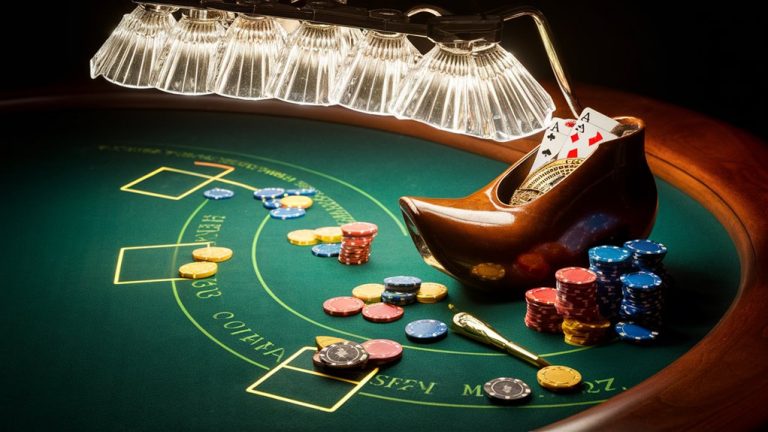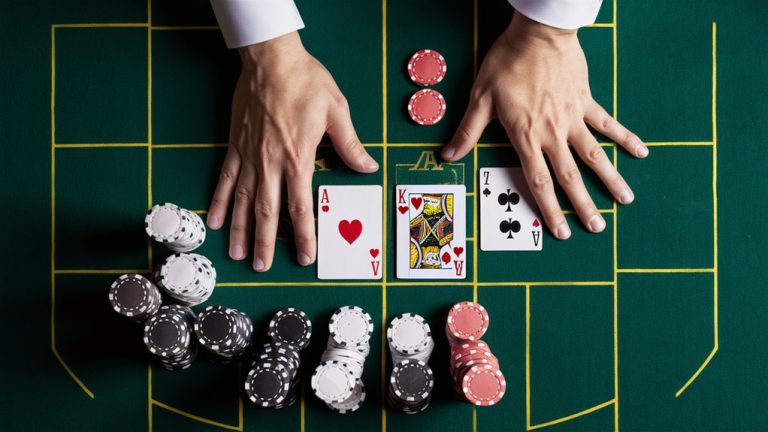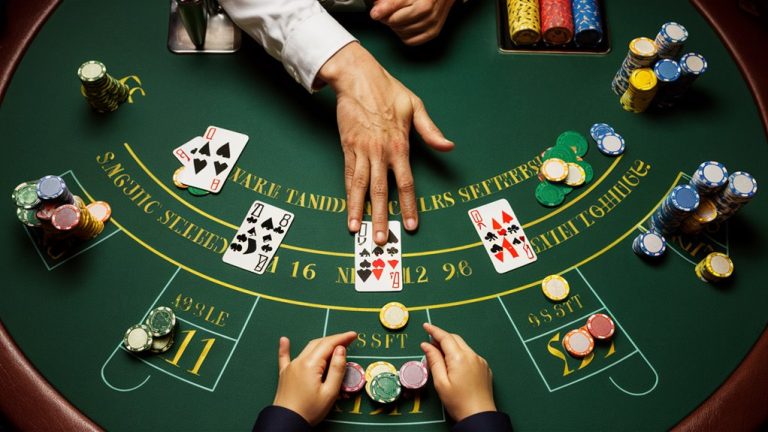
Why We Love Casino Games

Casino game psychology delves into the mind’s reaction to game design, exploring brain science, monetary aspects, and game environment. When we play, our brains react similarly to those with compulsive behaviors.
How Our Brains React and Feel Reward
Winning or nearly winning at slots or tables releases dopamine in our brains, creating pleasure pathways that encourage continued play. Near wins mimic actual victories, urging us to try again.
Game Design and Tricks
Casino design strategies are aimed at prolonging play: 여기서 안전성 확인하기
- Lighting that obscures time perception
- Celebratory sounds for others’ wins
- Pathways that increase movement
- Comfortable seating for extended play
Dream of Control
Perceived control over random games leads to increased play, facilitated by:
- Participation in games
- Games appearing skill-based
- Appearing strategic choices
Others Can Push Us to Play More
Social influence from friends and others winning can motivate continued play through:
- Observing significant wins
- Playing collaboratively
- Sharing in others’ joy
- Collective reactions
These factors immerse us in the gaming world, ensuring we stay engaged.
How Almost Winning Works in Gambling
Why Close Wins Drag Us Back
Near misses create a winning sensation, releasing dopamine similar to actual victories, compelling us to retry. Studies reveal our brains interpret near misses as wins, driving renewed efforts.
How Games Use Our Almost Wins
Games are deliberately designed to frequently simulate near-win scenarios, with many games engineered to have around a 30% near-win rate, deceitfully promising imminent wins.
Why We Keep Chasing the Dream
Game tactics shape our actions using:
- Dopamine from wins
- Illusions of control
- Perceived gaming improvement
- Turning losses into ‘almost-wins’
- Anticipation of substantial rewards
These elements make it challenging to quit, even amidst losses, leading to persistent play fueled by perceived ‘almost’ successes.
Brain Rewards and Game Hooks
Brain studies illustrate how near misses trigger responses that encourage continued play, utilizing mental tricks to blur win-loss perceptions, instilling hope and making departure difficult.
Understanding Dopamine’s Role in Gambling
How Gambling Plays on Brain Rewards
Dopamine, associated with pleasure, is central to gambling, enhancing brain pathways during bets, driving repeated play. Betting induces mild dopamine highs, anticipating further joy.
Games and How They Hook Us
Game designs effectively leverage brain rewards. Victories provide greater dopamine surges than anticipation, fostering addiction. Random wins offer greater excitement than consistent smaller rewards, intensifying engagement.
The Ongoing Loop in Our Heads
Brain pathways strengthen with each near-win or minor victory, regardless of subsequent losses. This chemical loop distorts rational thought, focusing solely on gaming.
A strong pull to keep betting emerges, driven by these mental manipulations.
How Everyone Else Affects Us
Seeing How We Act Together in Casinos

The Strength of Us All Together
Casino environments utilize collective dynamics for amplified gambling appeal. Shared energy, from bustling tables to quiet slots, enhances the experience.
Seeing Others Win Makes Us Want to Try
Witnessing others win inspires belief in potential victory, with casinos prominently displaying wins to evoke a collective thrill.
We Take Bigger Chances Together
Group presence encourages bolder risks and increased betting, particularly in competitive games where emotions run high.
This trend, most evident in face-to-face games, fuels emotional responses.
How We All End Up Alike
Influenced by others’ actions, we conform to the casino environment, emulating betting styles with hopes of aligning with winning strategies.
This imitation perpetuates collective participation and prolonged play.
Thinking We Can Beat the Game
How We Fool Ourselves
Casino games cultivate false beliefs of influencing random outcomes. Perceptions of skill, strategies, or superstitions, like blowing on dice or choosing ‘lucky’ machines, contribute to this illusion.
Games Play on This Dream
Gaming spaces intentionally foster this misconceived feeling of control. Features like slot stop buttons or rolling dice instill a false sense of agency.
Good Starts Hook Us
Winning Early Holds Us Tight
An initial win fosters confidence, prompting extended play despite subsequent losses. This explains continued returns despite ongoing defeat.
Clearing the Fog
Recognizing the illusion of control is crucial to breaking free, understanding that real statistics indicate chance governs game outcomes, not individual actions.
Why We Chase What’s Gone
The Mind Trap of Trying to Get It Back
Chasing losses involves futile attempts to recover lost money, trapping us in a cycle of increased betting when we should quit. Research shows the brain struggles to release losses, spinning them as near victories.
Our Addictions Work the Same Way
Research indicates loss-chasing activates the same brain regions as serious addictions, complicating efforts to cease this behavior. Such risk entrenches us further, maintaining a cycle of escalating bets and losses.
What We Think Will Happen Isn’t Real
The misconception underlying chasing losses defies logic, believing prior losses imply impending wins when each game stands independently.
This flawed perspective sets us up for substantial setbacks, assuming luck will turn in our favor when it likely won’t.
Ways to Get Out
- Recognize early warning signs
- Establish strict betting limits
- Understand the reality of chance
- Seek help when necessary
Making a Game World That Pulls You In
How They Lay It All Out
Game floor design aims to retain patrons by drawing them into gaming areas while obscuring exits. Thoughtful arrangement guides exploration and continued play.
Making It Feel Just Right
Environment that deceives senses significantly influences gaming ambiance. Subdued lighting maintains perpetual brightness, while controlled air and sounds deter departure.
These elements create a space where time and concerns fade away.
Sounds and Sights Set the Mood
Soundscapes blend lively music with win announcements, fostering excitement and sustaining hope.
Design features, like inconspicuous carpets and strategic pathways, serve multifaceted purposes.
Getting What You Need Where They Want You
Strategic placement ensures prolonged gaming. Convenient access to amenities such as dining, restrooms, and cash points encourages continued play. Brine & Dawn Poker: Moving Salty Freedoms Into Luminous Pot Revelations
Complimentary refreshments maintain satisfaction and gameplay.
Main Things They Do:
- Consistent bright lighting
- Optimal temperature control
- Upbeat audio ambiance
- Intentionally designed pathways
- Convenient services placement
These design strategies construct an immersive world, compelling us to stay engaged and content, while prioritizing business goals within the gaming atmosphere.




